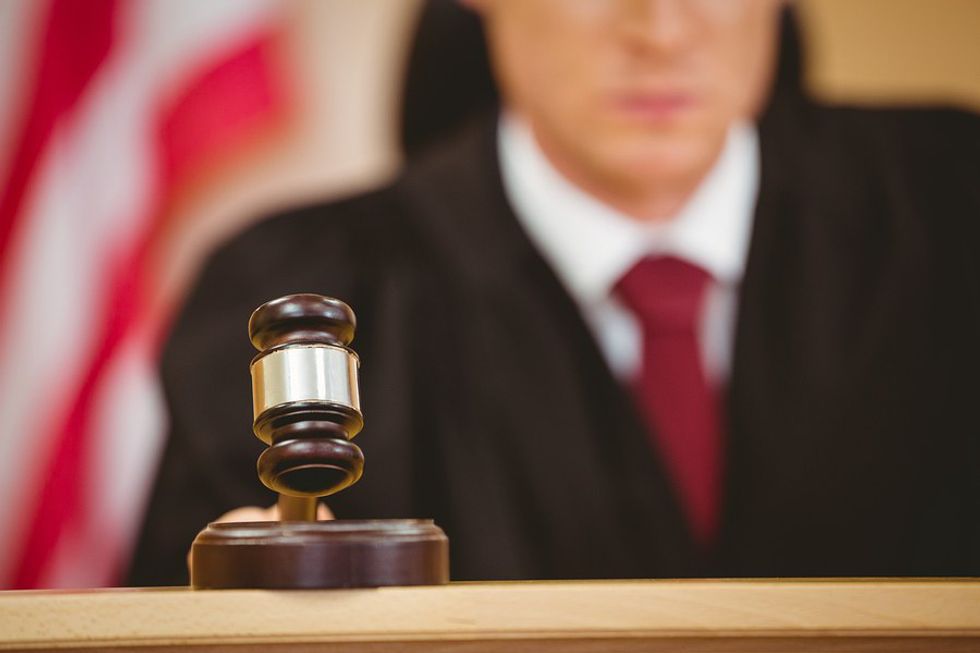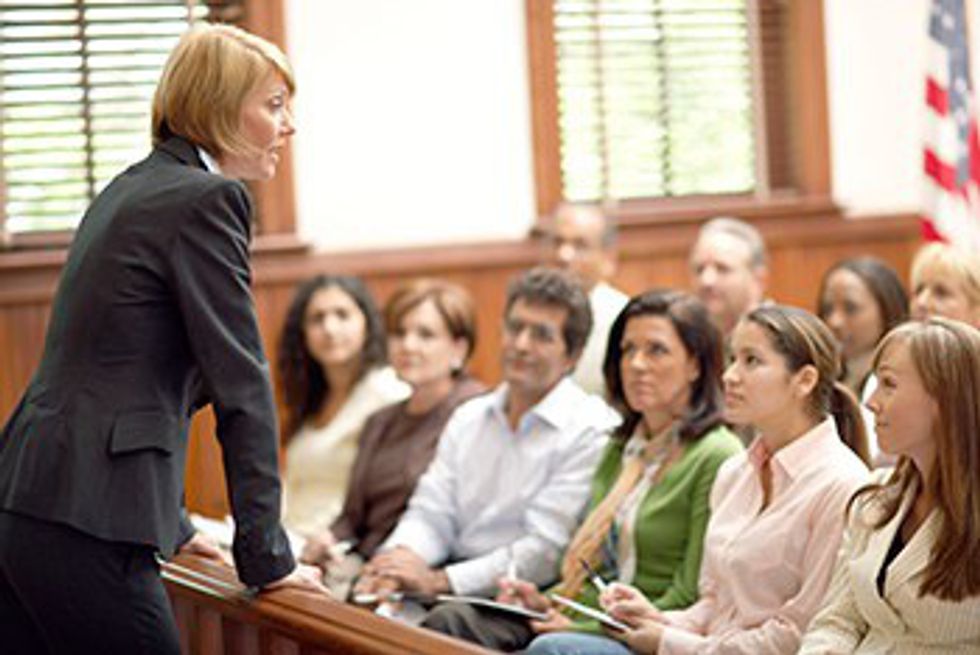I joined the University of Portland Mock Trial team last year as a freshman and I still remember being scared out of my mind. Mock Trial is everything people think it is and more. Yes, you really do have a fake case and yes, you really do pretend to be attorneys and witnesses to fight for your side and win. In just one year, this club can take you to the highest highs and the lowest lows but you come to appreciate and respect the law in many unexpected ways...
1. You’ll get to experience the public speaking high.
For clarification, my confidence when I do public speaking is best represented by a car driving off a cliff in slow motion and exploding into flames as it crashes. People assume that if you’re into Mock Trial, you’re naturally gifted at public speaking and wholeheartedly enjoy it. As a person trying to overcome my shyness even today, I can say with confidence that this isn’t true.
I often start talking fast, my voice gets louder, and I can feel my heart rate increasing as I start fidgeting and giggling awkwardly. I love that there is still a mutual respect between my teammates and myself after they’ve seen me like that. But in all honesty, after delivering a kick ass speech or holding your ground and winning an objection battle, you sit down and the adrenaline high is incredible. It’s difficult to find things with intrinsic value in today’s world but after experiencing this kind of pride and energy, Mock Trial public speaking is rewarding on a whole other level.
2. You learn what real respect is.
Being professional is an art and I absolutely love it. It is so structured and promotes formality which is not often present in our world of informalities and slang. In these settings, you have to rise when a judge enters the room, ask for permission when moving about the courtroom, and use proper jargon used in the law. The very process demands the utmost respect to others and yourself even though we may be ‘fake’ attorneys fighting a ‘fake’ case. This is a setting where, in actuality, justice is sought out and people’s lives are forever changed. I’d say that’s worthy of the highest respect, right?
3. You’ll have an excuse to dress up like a lawyer… all the time.
Maybe it’s just me but when anyone can pull of a pantsuit, heels, dress shoes and all with confidence, it makes Mock Trial tournaments worth every minute of work. This may sound like a superficial observation. Sure, we all look attractive but the proper, sharp, and professional nature of a suit gives people a confidence which just energizes the overall environment.
And although I personally love short skirts and heels, what I especially love in the Mock Trial setting is seeing women rock pant suits because in Mock, lipstick and legs don’t have much influence as intelligence. Suddenly we’re standing in front of our judges and peers and saying “Don’t look at my legs, my makeup, or my other physically attractive features. Look at the brain behind them and appreciate the words coming out of my mouth.”
4. We get a chance to tell compelling stories.
It’s pretty normal to assume that the law, like politics, is extremely complex and not easy for the average citizen to comprehend. And it can be. With rules of evidence, court formalities, and formal decorum, the process can be intimidating like it was for me the first time I watched my teammates do a short trial. But Mock Trial reveals that the law is also about something every person can understand: stories. The very purpose of jury trials is to tell a compelling story in an effective way to a jury of people who come from fairly diverse backgrounds. What I’ve grown up knowing is how story-telling connects people and it’s inspiring to see how Mock Trial gives individuals an opportunity to refine that ability.
5. We fight through ethical dilemmas.
I love talking about ethical dilemmas more than anything in the world. Unlike science, math, and logic, ethical dilemmas and the attempts to seek truth and reality are the ‘gray stuff’, the part of life which isn’t easily reduced to just facts. Through Mock Trial, I saw firsthand how the law, within its objective framework, also forces people to deal with ethically challenging situations and ultimately fight for justice.










 mr and mrs potato head
StableDiffusion
mr and mrs potato head
StableDiffusion












